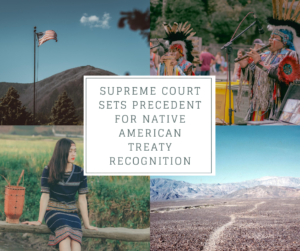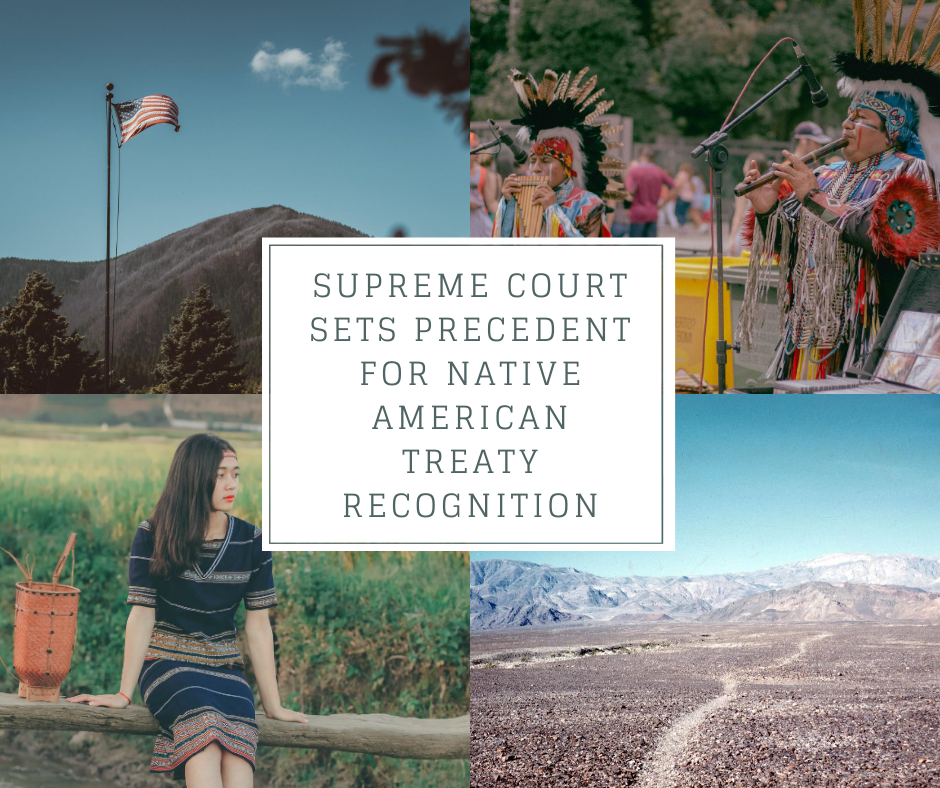 On July 9th , 2020, The United States Supreme Court ruled in a 5-4 decision that about half of the state of Oklahoma is within Native American tribal territory. Justices Ruth Bader Ginsburg, Gorsuch, Sonia Sotomayor, Elena Kagan, and Stephen Breyer were in favor of the ruling, and Justices Brett Kavanaugh, John Roberts, Samuel Alito, and Clarence Thomas were against.
On July 9th , 2020, The United States Supreme Court ruled in a 5-4 decision that about half of the state of Oklahoma is within Native American tribal territory. Justices Ruth Bader Ginsburg, Gorsuch, Sonia Sotomayor, Elena Kagan, and Stephen Breyer were in favor of the ruling, and Justices Brett Kavanaugh, John Roberts, Samuel Alito, and Clarence Thomas were against.
The Muscogee/Creek Nation offered this response to the decision:
“The Supreme Court today kept the United States’ sacred promise to the Muscogee (Creek) Nation of a protected reservation. Today’s decision will allow the Nation to honor our ancestors by maintaining our established sovereignty and territorial boundaries. We will continue to work with federal and state law enforcement agencies to ensure that public safety will be maintained throughout the territorial boundaries of the Muscogee (Creek) Nation.”
This ruling was the result of arguments presented in the case of McGirt vs Oklahoma, during which Jimcy McGirt contended that the state of Oklahoma lacked jurisdiction over his case, since he is an enrolled member of the Seminole Nation. McGirt was convicted by the state of Oklahoma for sexually abusing a child in Creek territory. The Major Crimes Act (MCA) stipulates that if a Native American person commits a crime on a Native American reservation, then the Native American tribe has jurisdiction over the case. McGirt argued that since he committed his crimes on the Muscogee/Creek Reservation, he should have a new trial.
Although this decision will pull both past and future civil and criminal cases into question, the Supreme Court ruled that the Muscogee/Creek indeed have jurisdiction over a sizeable portion of Oklahoma, including the city of Tulsa, per the 1833 Treaty that determined the borders of the reservation, so long as they exist as a tribal nation. This treaty was officially patented in 1852, and Congress is the only branch of government that can disestablish a reservation. The state of Oklahoma attempted to argue that the reservation was previously disestablished during the Allotment Era (1887-1934), when Congress attempted to persuade tribal members to take individual plots of land and denounce their communal identity. This was the earliest attempt at the assimilation of Native American people. However, the court rejected allotments ended reservations.
Despite the indisposed circumstances, this ruling is monumental for Native tribes, because it sets precedent for treaty recognition. There are over 500 active treaties between various tribal nations and the U.S. government that have not been honored, and continue to be violated. Native Americans look at this moment in Supreme Court history as a step away from the paternalistic undertones of tribal sovereignty. For earlier this year the Mashpee Wampanoag had their land taken out of trust or disestablished, and were forced to take legal action to maintain their ancestral lands.
It is important to note that sovereignty, to Native American tribes, indicates more than possessing physical ownership of the land. Native Americans and other Indigenous people around the world share an ancestral bond with the lands. Passed through generations is the responsibility to be a steward of the land, and to protect Mother Earth. Therefore, this is as much of an emotional and spiritual victory, as it is political. This could be the beginning of giving the power over the land back Indigenous people. The case of McGirt vs Oklahoma, serves as an antithesis to colonialism, and is the beginning of the acknowledgement of broken promises between the U.S. government and tribal nations in the highest court of law.
 Aminah Ghaffar is a Lumbee and African American Indigenous Advocate from Pembroke, NC. She has a BS in Biology from ECU, where she also competed for the track and field team, and a MS in Physiology and Biophysics from Georgetown.
Aminah Ghaffar is a Lumbee and African American Indigenous Advocate from Pembroke, NC. She has a BS in Biology from ECU, where she also competed for the track and field team, and a MS in Physiology and Biophysics from Georgetown.

There are no comments
Add yours